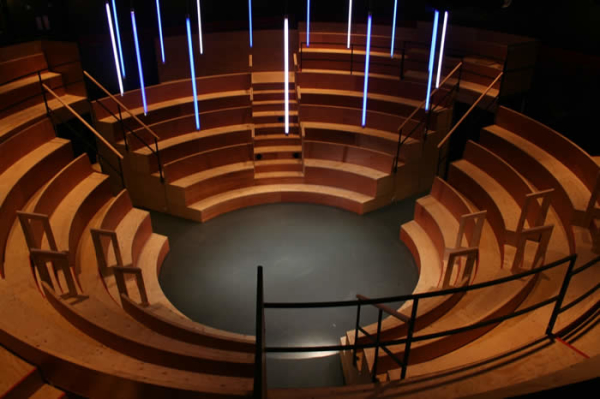Are micro-festivals a help or hindrance for the Edinburgh Fringe?
An increasing number of festivals-within-the-Festival pose new challenges and opportunities

If sticking a pin in the Fringe brochure doesn't appeal, then there are an increasing number of festivals within the festival helping theatregoers make discerning choices. Curated and often subsidised programmes abound, many with the weight of established theatres and companies behind them.
This summer, Northern Stage are back with an Edinburgh season for the third year running, as well as teaming up with touring company Paines Plough to present a series of plays in the Roundabout auditorium. Made in Scotland has again cherry-picked a selection of the best Scottish work to showcase, while Escalator East to Edinburgh continues to support artists from the East of England. You could also add to that list the quality stamp of the Traverse, the always interesting work of artist-led space Forest Fringe, and the exciting and increasingly reliable line-up at Summerhall.
In one sense, this is all brilliant news – for artists and audiences alike. As each August brings with it a fresh death knell for the original defiant spirit of the Fringe, programmes like those listed above offer a vital alternative to the creeping commercialisation elsewhere. Many of these initiatives are driven by the ambitions of artists and allow for genuine creative risk, at the same time as removing a little of the risk for audiences, who can trust in the reputation of those curating the shows. Northern Stage, for instance, offers a platform in Edinburgh for theatre-makers at various different stages in their careers, providing them with accommodation, marketing and technical support, plus a recognisable name to attract audiences to otherwise relatively unknown work.
"It is perhaps harder than ever for companies to come up to the Fringe with no track record and make a name for themselves"
All very well for those theatre-makers lucky enough to go up to the Fringe with that support, but what about everyone else? It's worth questioning, like Matt Trueman did last year in the Guardian, whether subsidy really has a place on the supposedly independent, anti-establishment Fringe. With attention, audiences and journalists being drawn towards these curated programmes, it is perhaps harder (and more expensive) than ever for companies to come up to the Fringe with no track record and suddenly make a name for themselves by virtue of pure talent and invention. Add to that the dominance of the big four commercial venues and it's not a friendly picture for hopeful emerging companies. And isn't the very necessity for these micro-festivals a demonstration, as editor Theo Bosanquet discussed last summer, that the Fringe might just be getting too big?
The growth and splintering of the Fringe also poses a problem for journalists. There's more promising work than ever (my initial list of shows that look interesting this year stands at well over 100), but this means less and less time to stumble across the unexpected. At last year's Fringe I saw an impressive number of excellent shows, but very few – if any – of them really surprised me. There was no true sense of discovery; shows simply delivered on or exceeded expectations that were already in place. Perhaps we journalists are to blame for not venturing further off the beaten track, but friends who went off-piste last year reported precious little of interest. There's just too much to wade through and too little time, making the likes of Northern Stage and Summerhall a godsend for critics stretched to breaking point.
Given the quality and innovation of the work coming out of many of these sources and the opportunities they provide for artists, it's hard to criticise or regret their existence. I'm delighted that Summerhall continues to go from strength to strength and that this year Northern Stage will be moving just down the road from it, creating an instant festival hub away from the shiny lure of the big four. It's also fantastic to see Forest Fringe in Edinburgh again, creating a genuinely alternative space and presenting its whole brilliant programme for free. The Fringe has changed over the years, as the growing desire for such micro-festivals demonstrates, and it's unlikely to change back overnight. But I'll still be crossing my fingers for a few surprises.
FOR MORE ON EDINBURGH 2014 VISIT WHATSONSTAGE.COM/EDINBURGH-FESTIVAL












